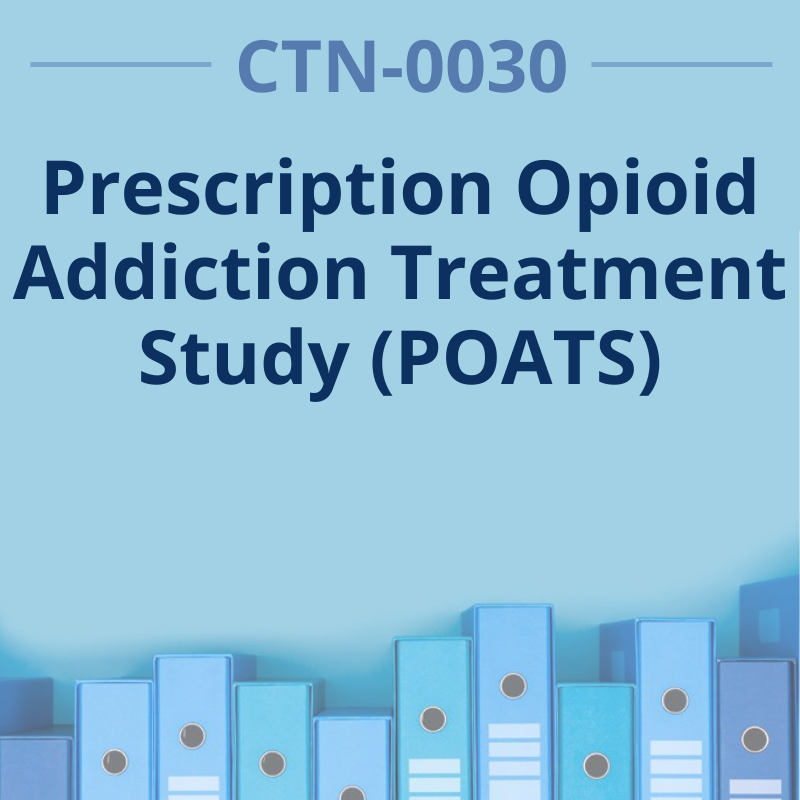CTN-0030: Prescription Opiate Abuse Treatment Study (POATS)

Roger Weiss, MD
Co-Lead Investigator
Harvard Medical School
McLean Hospital
rweiss@mclean.harvard.edu
Walter Ling, MD
Co-Lead Investigator
Director, Integrated Substance Abuse Programs, UCLA
lwalter@ix.netcom.com
This was a randomized outpatient study for treatment-seeking participants dependent on prescription opioid analgesics. The primary objective was to determine whether the addition of individual drug counseling to the prescription of buprenorphine/naloxone (Bup/Nx) and Standard Medical Management (SMM) improves outcome. Participants were randomized at the beginning of each of two phases to receive BUP/NX paired with either Standard Medical Management (SMM) or Enhanced Medical Management (EMM; defined as SMM plus individual counseling). Six hundred and fifty three participants were randomized into Phase 1, and 360 participants were randomized into Phase 2.
Primary Findings
Prescription opioid–dependent patients are most likely to reduce opioid use during buprenorphine-naloxone treatment. However, if tapered off buprenorphine-naloxone, even after 12 weeks of treatment, the likelihood of an unsuccessful outcome is high, even in patients receiving counseling in addition to standard medical management.

Primary Outcomes Article: Weiss RD, et al. Adjunctive counseling during brief and extended buprenorphine-naloxone treatment for prescription opioid dependence: A 2-phase randomized controlled trial. Archives of General Psychiatry 2011 (in press).
Related Studies
- CTN-0030-A-1: Collection of Economic Data for the Prescription Opioid Addiction Treatment Study
- CTN-0030-A-2: Effects of Chronic Opioids on the Brain
- CTN-0030-A-3: Protocol Amendment to Examine Long-Term Outcomes
Related Resources
- CTN-0030 Study Protocol
- Publications in the Library about CTN-0030
- Study data from NIDA Data Share
- Blending Team Product: Buprenorphine Suite
- ClinicalTrials.gov (NCT00316277)
- NIDA protocol page
Node Involvement
Lead Node(s):
All Participating Nodes: